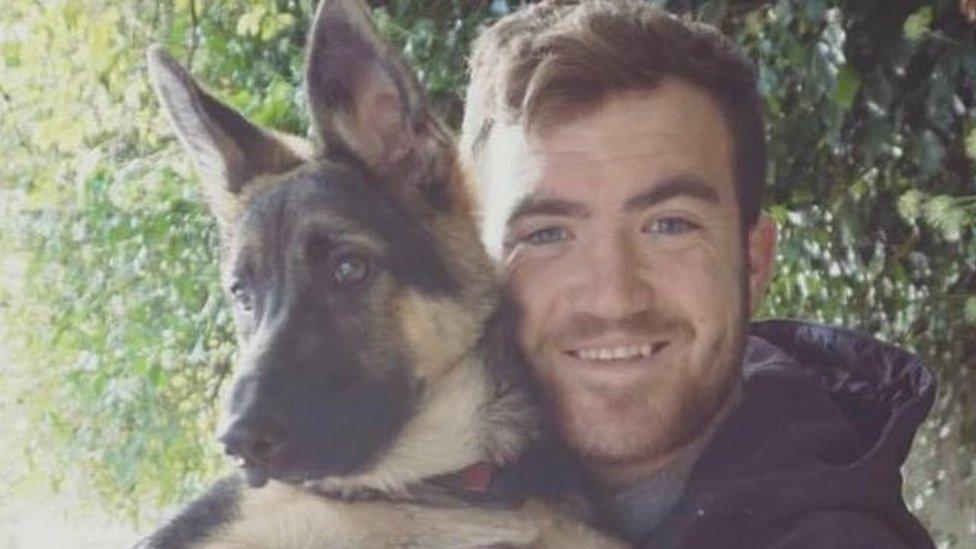Plea to religious leaders follows fiancé's suicide
- Published
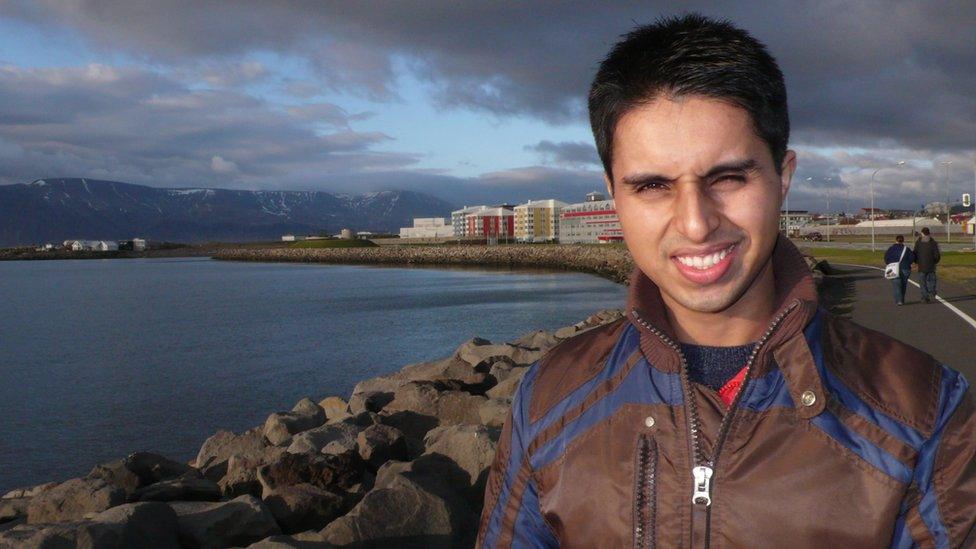
Nazim Mahmood took his own life after coming out to his religious family
A man whose fiancé took his own life after his religious family refused to accept his sexuality is pleading with religious leaders to help improve relationships between LGBT+ children and their parents.
Nazim Mahmood hid his relationship for 13 years. Two days after coming out to his parents, he took his own life.
His death led partner Matt Mahmood-Ogston to consider killing himself too.
As a result, Matt set up a charity to help others in a similar situation.
The Naz and Matt Foundation aims to "prevent any religion from coming between the unconditional love of a parent and child".
Matt has written an open letter, external to religious leaders in the UK, pleading with them for to help improve relationships between LGBT+ children and their parents.
'Treated him like a disease'
Recent research by Maru/Blue, commissioned by the charity, suggests that nearly two in three LGBT+ people from religious backgrounds struggle with suicidal thoughts, anxiety and depression as a result of not being accepted by their parents.
The couple met in 2001 but Matt says Naz feared coming out to his parents, worried there would be consequences.
In 2014, after returning to his home city of Birmingham from the couple's London home to celebrate Eid, Naz was confronted about his sexuality for the first time and decided to tell his family he was in love with a man.
"Their reaction was to tell him to go to a psychiatrist [to be 'cured' of being gay]. They treated him like he was a disease who needed to be removed from that family," Matt said.
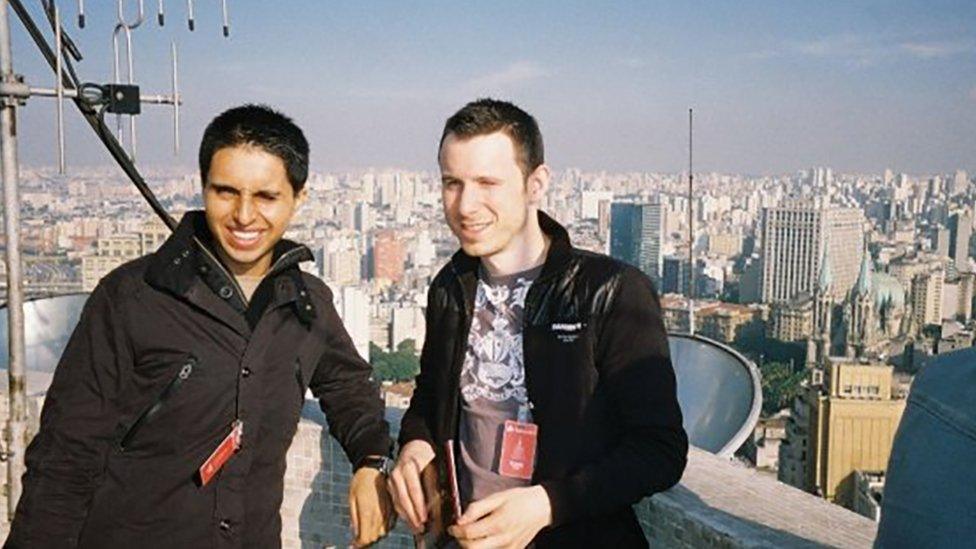
Friday 10 September is World Suicide Prevention Day
It was at that moment that Matt says he began to understand that their future was "beginning to unwind".
"I got a call to come home. As I turned into the street, I saw the police car, the police tape, the crowds gathered," he said.
"That's when I began to realise that my Naz, my happiness and my soulmate, was no longer here."
Matt is asking religious leaders to speak out against all attempts to force conversion therapy on a person, or attempts to lean on someone to change or suppress their sexuality or gender identity in any way.
He said he hoped to help "give parents the tools to help them understand and accept their own children".
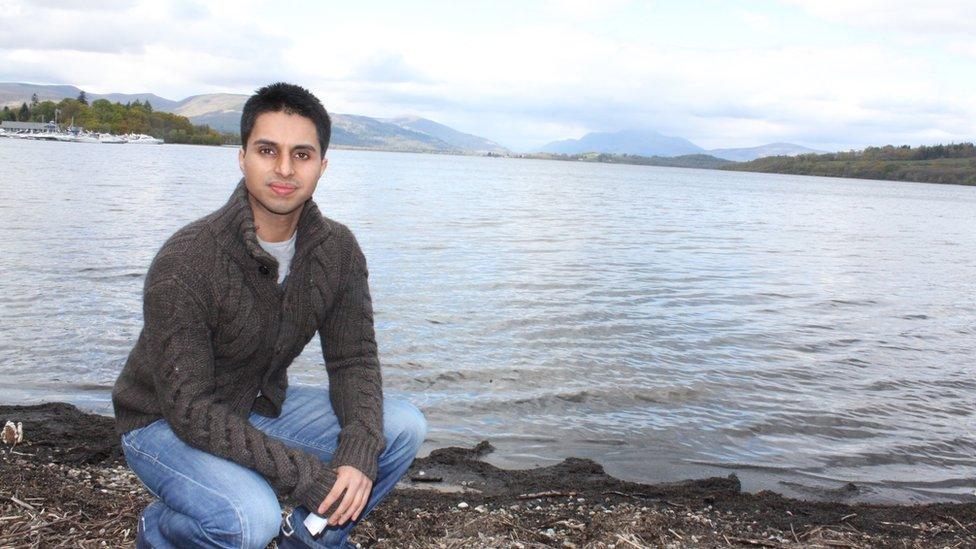
Naz's family told him to see a therapist to "cure" him
Matt said: "Naz was the most beautiful, caring, loving person. He was a much-loved GP in the community - his patients loved him. All he really wanted in life was just to be happy.
"He knew he could never come out to his parents because he feared what would happen if they knew he was gay. We realised that to be ourselves, to be together, we would have to run away from our home city of Birmingham to the bright lights of London, free from the fear of being discovered."
Matt, who hopes that his pain can help other people, said: "I want this problem to go away. And this letter is a step towards having more conversations.
"My message to LGBTQI+ individuals and their parents is to sign this letter, to work with religious leaders to make our communities a more accepting place to live."
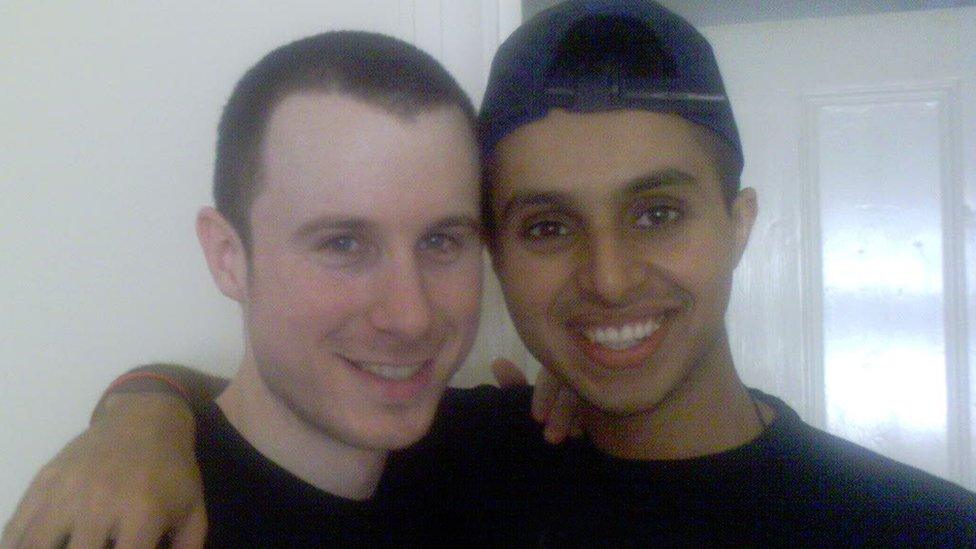
Matt hopes he can help people who struggle with their sexuality due to the pressures of having a religious family
He hopes the letter will be a small step forward towards lasting change and ensure his fiancé did not die in vain.
Matt said: "He spent his whole life helping other people. I just hope the work we're doing is contributing to his legacy.
"I want the world to never forget Naz and why he died so early."

The BBC Action Line has details of organisations offering information and support if you, or someone you know, has been affected by the issues raised in this story
Related topics
- Published1 September 2021
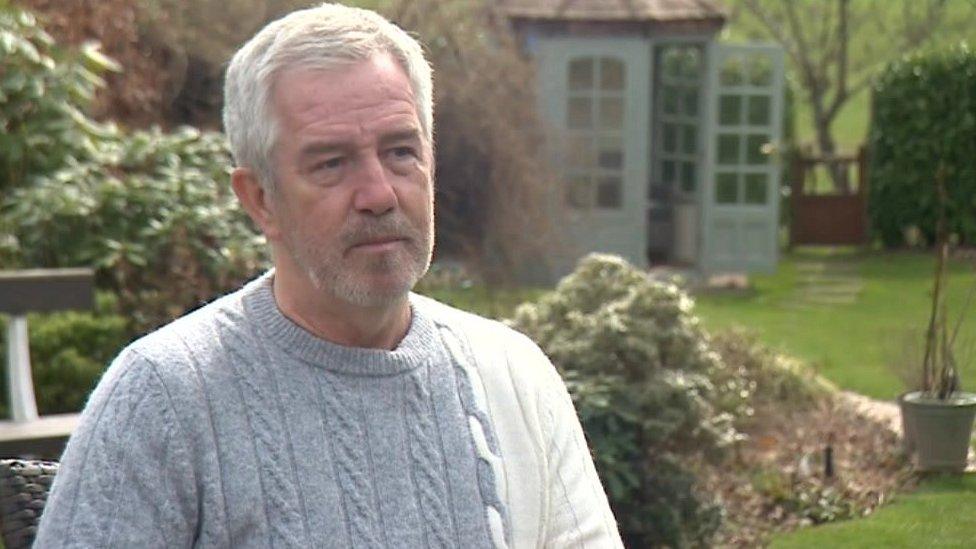
- Published30 July 2019
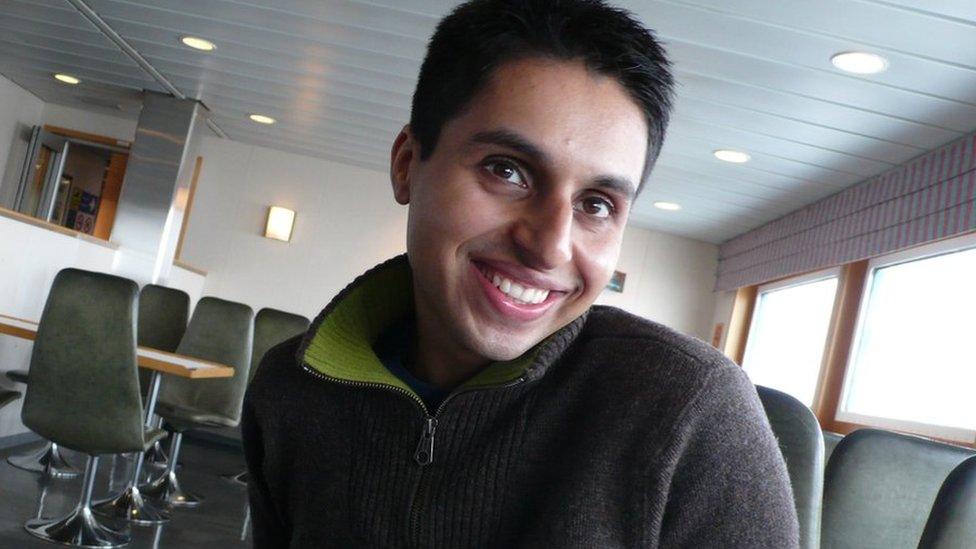
- Published6 July 2021

- Published20 September 2024
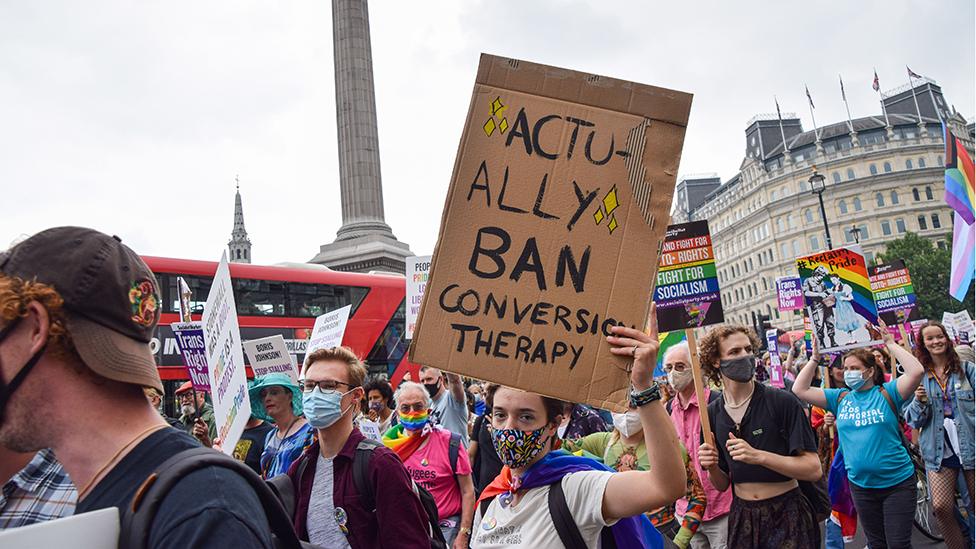
- Published12 June 2019
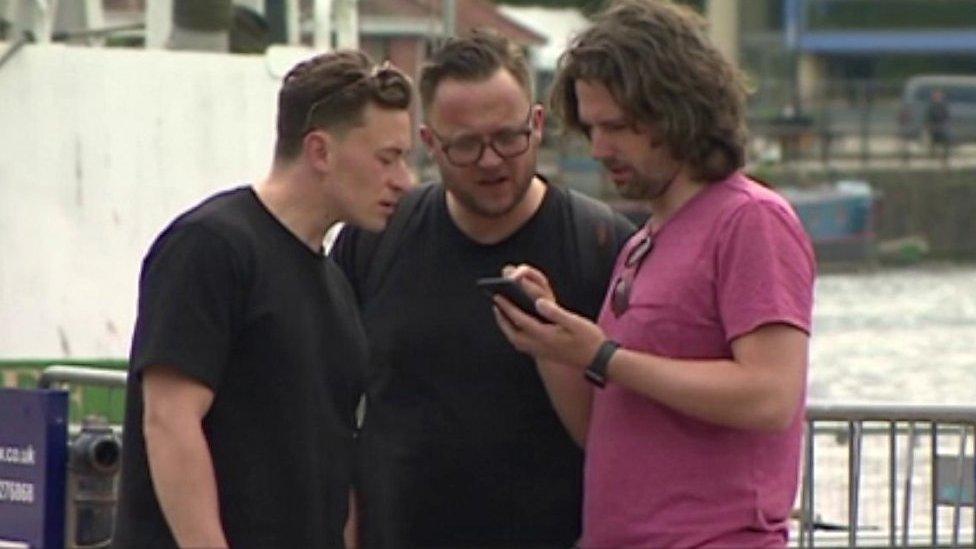
- Published25 March 2021
